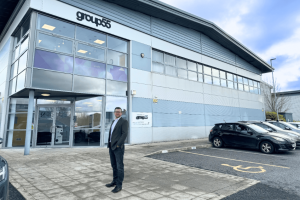JLR bosses look at contingency plan amid DHL pay row

THE new chairman of Jaguar Land Rover parent, Tata Motors, has said the company has contingencies in place to ensure that strike action by its UK logistics partner will not disrupt production.
Speaking at his first annual meeting of shareholders, Cyrus Mistry said the company was looking at alternative arrangements to ensure it was not held to ransom by DHL.
Hundreds of workers employed by DHL will stage half-hour walkouts at the factories in Halewood, Merseyside, and at Castle Bromwich and Solihull on Wednesday.
The DHL employees, who work alongside the JLR workers, are seeking pay parity with those employed by the Indian-owned group.
DHL is JLR’s logistics partner and its staff manage stock at various warehouses to ensure there is a steady supply of parts to the three factories.
The stoppages are unlikely to impact production too severely but are an indication of the Unite union’s intentions to force DHL management into further negotiations.
Reports have suggested that DHL workers have been offered a 4.5% increase backdated to January and a 3% increase or the rate of inflation during 2014.
However, Unite is understood to want a 12.8% rise for the 1,800 DHL employees working directly at the JLR plants plus 20.6% for the drivers delivering the parts.
Mr Mistry was quoted in the India media as saying “alternative arrangements” were being made to avoid any production loss at the three plants.
He said the dispute was a private matter between the union and DHL but confirmed JLR was holding its own talks with DHL.
The comments come at a difficult time for the parent company which is experiencing reduced demand in the sub-continent.
The Mumbai-based firm, which relies heavily on JLR’s profits to sustain the business, saw an operating loss in the first quarter. Mistry said operations in India had been impacted by a slowdown in the domestic car market, high interest rates and stagnating growth.
Another problem for the firm has been a decline in sales of its innovative Nano vehicle, thought to be the cheapest car in the world.
Launched in 2008, the Nano was hailed as an industry revolution. However, five years on, buyers are thought to be shrugging the car because of its cheap image.
In response, Tata has said it will give the car a makeover to try and sell it as a smart city car to younger customers.








